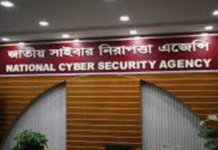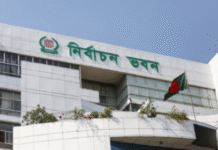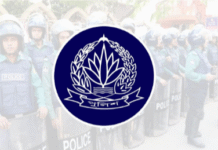Islami Bank ‘Crisis’: Two reasons led to Arastoo’s exit
He falls from certain quarter’s grace for his reluctance to sack 21 top officials, approve Tk 1,900cr loans to two large business groups

Refusal to terminate 21 top officials and extend some big loans has forced Arastoo Khan to resign from the post of chairman of the Islami Bank Bangladesh Limited after only one year of his three-year term, an investigation by The Daily Star has found.
A list was sent to the bank’s chairman a couple of months ago asking him to fire 21 officials — ranging from additional managing director to deputy managing directors, executive vice presidents to mid-level officials — who were branded as people having affiliations with a certain political party or being its sympathisers.
Of them, five top officials — one additional managing director, three deputy managing directors and a senior executive vice-president — were forced to quit on April 3, and the IBBL board, under pressure, accepted their resignation after two days.
But pressure was mounting on Arastoo to terminate the remaining 16 officials on the list, but he did not agree with this, saying the loss of such a big number of top executives will create a huge vacuum of knowledge and expertise in the bank.
An influential director took this opportunity and termed Arastoo non-cooperative in cleansing the IBBL of Jamaat-Shibir men and this propaganda was well-circulated by a quarter in the government.
Arastoo was asked to step down and he did so on April 17, and the board immediately accepted his resignation and took no time to replace him with Prof Nazmul Hassan of Dhaka University.
The other factor that led to Arastoo’s resignation was his tough stance against disbursement of large loans.
A big business group, which has exposure in real estate and cement, steel and commodities, wanted Tk 1,400 crore loans, which Arastoo turned down on the ground of the bank’s fund shortage.
The other loan proposal worth around Tk 500 crore was from a real estate company owned by a powerful man in the government and the then chairman refused to approve the loan.
According to some close aides to Arastoo and insiders in the bank, all these issues made him an enemy of a quarter.
“Government’s good intention to depoliticise the bank is being misused by this quarter,” said one of the directors in the bank.
According to officials, the bank was not in a position to sanction large loans as, like other private banks, IBBL was in liquidity stress. As of March 31, IBBL’s advance (loan)-deposit ratio (ADR) was 92 percent, well above the present regulatory ceiling of 89 percent.
If the bank issues fresh loans, especially big ones, its ADR will shoot up further, which may infuriate the regulator, Bangladesh Bank.
In the second week of November last year, the BB asked the IBBL to bring down its ADR within the limit, otherwise the bank will face punitive measures.
Talking to The Daily Star on Wednesday, Arastoo admitted that he stopped disbursing large loans. Asked if he was forced to quit, he said, “I am not interested to talk about this right now.” He also did not comment on other issues of the bank.
The bank started witnessing the changes after some little-known companies bought its shares in 2015 and 2016.
The companies include Platinum Endeavours Limited, Paradise International Limited, BLU International Limited, ABC Ventures Limited, Grand Business Limited, and Excel Dyeing and Printing Limited.
They held over 14 percent stakes in the bank till November last year. A Chittagong-based conglomerate is allegedly linked to these companies.
In January last year, the IBBL saw some major changes. At the time, its chairman, several directors, managing director and heads of different committees were changed.
Arastoo, who became a director of the bank on December 15, 2016, was made chairman after 20 days. He replaced Mustafa Anwar, who represented Ibn Sina Trust, which is believed to have connections with the Jamaat-e-Islami, an Islamist party widely condemned for its role during the 1971 Liberation War.
Then on May 20 last year, a group of seven directors threatened to step down if a single of them had to resign under pressure.
They made the threat following disclosure by Syed Ahsanul Alam, former vice-chairman of the bank, on May 11 that he was being asked by some quarters to resign.
Ahsanul was finally removed from his executive post on May 23. A few days later, he was also removed from the board of directors.
The IBBL was established in 1983 as the country’s first Shariah-based bank. Individuals, government institutions and some banks in the Middle East had over two-thirds shares in the bank at that time. Now their holdings have come down to 46 percent.
A share of the Islami Bank was traded at Tk 26.2 in Dhaka Stock Exchange on Thursday, down from Tk 40 a year ago.









